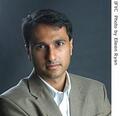weekly column
|
Each week, find a commentary on something connected to verses of Torah or another source of wisdom
|
|
Each week, find a commentary on something connected to verses of Torah or another source of wisdom
|
|
Friendly readers, after almost fifty installments of this project, I am interrupting weekly musings on “Wisdom Wherever You Find It.” Here is why. Though I cannot be exact, I know that the “open rate” on these columns has decreased significantly. If you are one of those people who reads my writing religiously (thank you both), you may disagree, but trust me – I am not wrong. I am also contending with major transitions in my life, professionally and personally, and my ability to focus on innovative messages has dwindled. These changes are all for the good, thanks for your concern, but as you likely know, all change is difficult. I began this blog in 2015 determined to spend some time reflecting on the weekly Torah portion presented in synagogues around the world. I no longer had the opportunity to learn with others in a satisfying way, so I spent some time each week thinking about what I would like to hear. Within a year, I started my project of chapter-by-chapter commentary on a single verse, and when I reached the end after more than five years, I turned to wisdom that was not from the Torah. If you want to review, you will find more than 325 entries archived on www.jackmoline.com under “Weekly Column,” or let me know to subscribe you to my Google group, “Aliba D’Rav” (a slight Talmudic pun meaning “according to a rabbi.”) Maybe I will be back at this in a few weeks, maybe during the summer or maybe when autumn leaves start to fall. By then, an email from me will have become unexpected again, and you will wonder if maybe you should give it three minutes. PLEASE do not write to tell me I am making a mistake. I am not fishing for affirmation or taking my ball and stomping off. Likewise, I am not looking for compliments; I have received many of those, and I thank you. If you want to tell me I am making the right decision…well, why were you reading these in the first place? Some of these columns will continue to appear in other places, including www.goodfaithmedia.org, which I will note on my Facebook page. Occasionally, you will hear something from me when I am inspired or peeved. Meanwhile, thank you for your attention for almost six years. See you soon!
0 Comments
 Wisdom Wherever You Find It You have a choice whenever you encounter something from another tradition. You can look for the differences, or you can find the resonances. I advise you to find the resonances. Sadruddin Patel Here is a piece of advice that a young Eboo Patel received from his father. It is among the things that propelled him down an extraordinary journey among people of many faiths and none at all. Sadruddin was a Shia Muslim, a Gujarati from the Indian subcontinent. (Gandhi, a Hindu, was likewise Gujarati.) Eboo was raised in a multicultural community outside of Chicago, and not always happily. I think about this piece of advice a lot. It strikes me as one of the more effective antidotes to the poison we have ingested as a society in which every difference is weaponized for local gain. There is simply a stunning amount of umbrage that is provoked by the plain notion that someone may have a distinct point of view from your own. And while I might find some level of understanding if the subject were the now-infamous “deeply held personal convictions,” the fact is friendships and families have been torn apart over the gentlest exercises of constitutional rights. The senior Patel’s instruction was about religious diversity, and I will stick with it for a moment before I come back to its larger implications. I have written before about my own reluctance in my younger days to consider favorably the beliefs and practices of others. I looked for the differences. I will go so far to admit I took offense at the affirmations of others that differed from my own. I think I was probably pleasant enough about it outwardly, but I know my inner commentator was insisting that these poor self-delusional religious folks (including some who were Jews) were somehow missing out. I have spoken with enough people about faith and tradition in the intervening years to know that many of them felt the same about me. What changed? Honestly, it began with a conversation I had with a Presbyterian. I won’t do well explaining how a Presbyterian church works (or, at least, is supposed to work), but the premise is that everyone is taken care of. Like any congregation, the lay leaders deal with budget and bylaws, but there is an entire structure that makes leaders responsible to keep in touch with and address the concerns of every member. There are formal names and guidelines (which I never committed to memory), and the traditional iteration was pretty much White and male, but the notion struck a chord within me as a rabbi. Somewhat accidentally, I found a resonance. And once I was able to adapt that resonance to my own Jewish congregation, I found others from many other traditions. (Let me commend the Sikh practice of hospitality, for example.) The junior Patel used this and other bits of wisdom to become a remarkable leader in interfaith relations. As his father inspired him, he has inspired others to find resonances in other traditions. But it seems to me this is good advice not only for engaging with practitioners of other faith traditions. My aforementioned larger implications are about society in general, especially but not just politically. There are, to be sure, people who are immovable in their convictions. In other contexts, I have wondered whether they are motivated by conviction or fear, but it does not matter. Mr. Patel’s model was not addressed to the “other,” but to you. Independent of campaigns and elections, nominations and appointments, legislation and policy declarations, there is always – always – a resonance for you, however deeply muted. In any situation, the matter at hand can be most effectively dealt with when both parties’ concerns are addressed. Will someone be unhappy when they don’t get their way? Yes. But they will be less unhappy if the resolution resonates than if they are defeated by mere power. This is not the place for an extended example, but I will mention one: marriage equality. In less than a generation, the vast majority of the American community turned 180 degrees on the question because advocates presented the matter not as a matter of law but as a matter of love. Civil rights implications still present challenges to those whose “deeply held personal convictions” define their concerns, but overwhelmingly Americans resonated with the similarly deeply held personal conviction that you love whom you love, not the person you are told to love. For those who, like me, lean hard to the left on social issues, finding the resonances is no less important. There is always a choice when you encounter some from a different perspective. Like the senior Mr. Patel, I advise you to find the resonances. By the way, the picture above is not of Sadruddin Patel, but of his son, Eboo. More resonance.  Wisdom Wherever You Find It It’s one thing for the minority to speak up. It’s up to the majority to say they are right. Bob Roberts, Jr. I think that if I am going to quote a Baptist preacher, I myself ought to begin with the Bible. In recounting the oppression of the Israelite slaves, the Book of Exodus (2:23-24) notes that when Pharaoh died, the Israelites groaned, which God took note of. The ancient rabbis looked at that text and wondered what took God so long to notice their groaning. After all, they had been enslaved to that Pharaoh for many years! The answer they formulated was this: the oppression was so severe, they were not allowed even to groan under their burden. Only when the king died could they cry out under the guise of mourning Pharaoh. I think it is pretty easy for people who are comfortable to imagine that everyone is comfortable. Intellectually, the person with a roof and a refrigerator and reliable transportation knows that some folks have less, but it is hard to feel another’s pain when you have none of your own. And when something happens to challenge the good life a person is living, all too often the focus is on the return to comfort rather than considering that others might be suffering as well. Mostly, we live at a time and in a place rife with blessing. We enjoy opportunities and freedoms never imagined even by the elite of generations past. But it is undeniable that some of us are much more richly blessed than others. The thing is true not only in a material sense. I am trying hard to avoid introducing the word “privilege” into this column, but I won’t succeed. Many, many, many people in the United States enjoy the automatic advantages that come with being White, or financially secure, or well-educated, or all of the above and more. They are well-documented and indisputable. Intellectually, people with those advantages (like me, just so you shouldn’t think I am merely pointing fingers) know that life is tougher for lots of others, but it is hard to feel another’s pain when you have none of your own. And here’s where it gets more than a little dicey. When those seeking a more equitable society speak up, those who are living on the plus-side of equity begin to worry that the (ouch, here it is) privilege they have enjoyed is going to be diminished. They hear the criticism of their advantages to be a judgment against what they have earned, if not by their own specific efforts, then by the community to which they belong. It is not worth denying it. When the minority wants what the majority has – material wealth, influence, earning power, representation, security, respect – those who believe any or all of those benefits exist in limited supply can hear only, “they want what I have.” And deep inside a voice responds, “but it’s mine.” Bob Roberts is a conservative Evangelical pastor who lives outside of Dallas. And he came to understand that there were a whole lot of people who practiced Islam who were considered less-than by the members of his community even thought they likely never met a Muslim. You can look up what his personal revelation led to by visiting his website, www.glocal.net. Bob knows that all the advocacy in the world will not result in justice and equity if those with power – the majority – will not acknowledge legitimate grievance. As a White man, a Christian, a person who lives a comfortable life, he knows there is enough respect and opportunity to go around. If those of us with privilege are only just hearing the groans of the oppressed, it is worth wondering not what took them so long to speak, rather what took us so long to hear. And if what they are saying is anywhere near the cries of the ancient Israelites, then it is up to us to say they are right. |
Archives
October 2023
Categories |